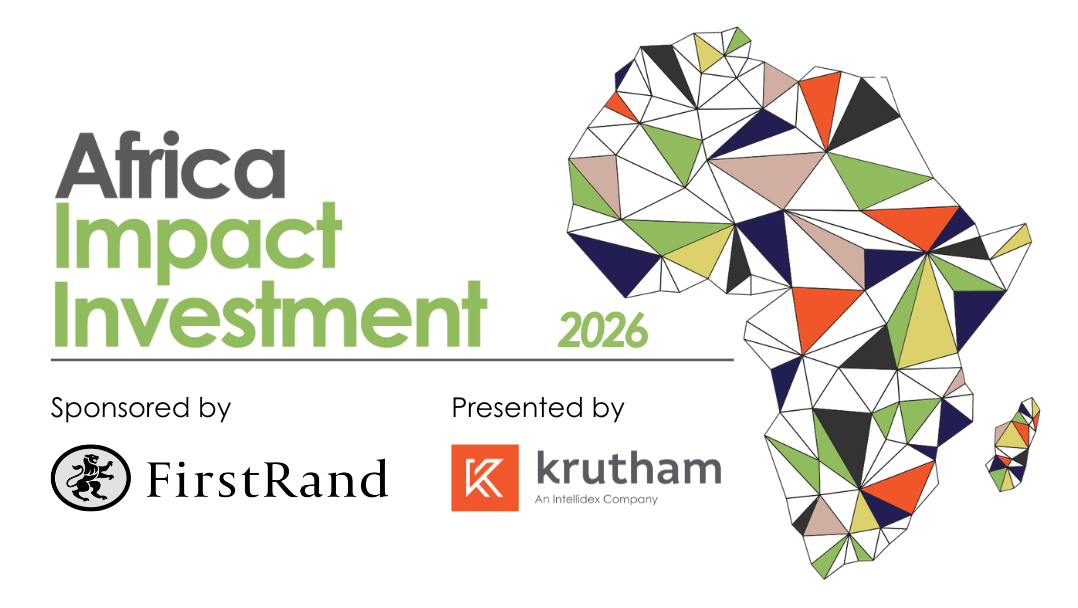This award recognises those fund managers who have a dedicated impact investment fund within their overall portfolio.
Yunus Social Business
Background
Yunus Social Business (YSB) finances and grows social businesses to tackle challenges such as poverty and the climate crisis. Founded in Germany in 2011 by Nobel Peace Prize Laureate Professor Muhammad Yunus, as well as Saskia Bruysten and Sophie Eisemann, YSB empowers local social businesses in East Africa that provide employment, education, healthcare, clean water and clean energy. By turning donations into investments in social businesses, the organisation reinvests repeatedly, increasing the impact each time.
Originality of design
YSB provides debt capital at concessionary rates in both local currency and US dollars to social businesses through a venture philanthropic fund that is moving to returnable capital. YSB reinvests returns to support other social businesses to expand their impact, ensuring that impact continues to be multiplied.
Meeting unfilled needs
YSB works with social business entrepreneurs which are in the early growth stages and which are often overlooked by institutions such as banks, using structures and collateral mechanisms that are more suitable for these businesses. This enables them to access financing they cannot access via commercial and microfinance institutions. YSB strengthens their impact thesis by providing them with a robust impact measurement tool.
Theory of change
YSB raises socially minded capital to provide flexible and affordable loans to early growth stage social businesses to professionalise and grow these companies. This ensures that people affected by poverty have better access to essential products and services or are able to achieve higher incomes while the environment is protected, ultimately leading to an increase in their quality of life.
Impact thesis
YSB supports social businesses that provide new or incremental income, or essential services such as health care, education, water and sanitation, to the bottom of the pyramid, or help to avert the climate crisis.
The core pillars of YSB’s IMM framework consist of a revised and SDG aligned theory of change and the framework is aligned to industry standards (EVPA Principles, SDGs, IMP and IRIS). The organisation has built its own toolkit including templates and guidance to implement elements consistently along the investment life cycle and uses IMM software to collect, analyse and visualise its findings. It bases its findings on semi-annual surveys sent to its portfolio companies, collecting both qualitative and quantitative information including explanations of the source of data such as gender or socioeconomic background.
SDG linkages
YSB’s impact measurement team applies a standardised toolkit which is embedded throughout the investment process. In the screening stage, clear impact objectives are defined at a global level and integrated in the overall investment strategy. YSB screens for potential investments based on defined impact thesis and SDG alignment. In the due diligence stage, it analyses the overall business models as well as social and/or environmental objectives of the companies. In addition, it reviews their impact model, IMM methodology, impact evidence and target stakeholder mapping, as well as identifying and evaluating impact risks. In the disbursement and onboarding stage, YSB integrates the impact objectives and reporting requirements in the loan agreements and defines impact metrics. It also tailors impact surveys for each portfolio company.
As part of the YSB portfolio, the companies are monitored through semi-annual impact surveys. Furthermore, portfolio impact reviews are conducted on an annual basis, as well as SDG mapping and reporting. When an organisation exits YSB’s portfolio, it conducts ex-post assessments of the impact performance over the duration of the investment.

Zero poverty through grassroots or corporate social businesses that benefits livelihoods and address SDG #1

Zero unemployment through grassroots or corporate social businesses that create inclusive employment and income opportunities and address SDG #8

Zero carbon emissions through social businesses that reduce net carbon emissions and address SDG #13
Impact
Key performance indicators:
1) 2.6-million+ customers served:
- Finance: 1.1-million
- Education: 489,800 students, (63% low income, 51% female, 72% primary and secondary education, 28% vocational training)
- Healthcare: 430,900 lives
- Energy: 423,300 customers
- Wash: 13,400 customers
- Food and other services: 184,500 customers
2) 1.3-million+ incomes supported:
- 9,400+ employees of its portfolio companies (71% permanent, 20% temporary and 19% low-income)
- 6,300 individuals placed in jobs
- 44,000+ suppliers and individuals who sell products or services to the portfolio companies of which 81% are smallholder farmers
- 3-million+ microentrepreneurs
3) 2.4 tonnes of greenhouse gas emissions averted
- 38,600+ tonnes of waste recycled or reused
- More than 55,500 tonnes of food loss and food waste prevented
- 371,400 trees planted
- 1,200+ ha of land reforested
- 139,400 ha of land indirectly controlled and, as a result, sustainably managed
YSB offers low/no collateral, affordable loans enabling social businesses to cross over the hump and continue to expand their business models, which at their core are focused on:
- Improving access of essential products and services
- Improving incomes and job roles
- Reducing carbon emissions
YSB finances companies that are transitioning from an early stage to a growth stage, meaning they are at the threshold of scaling up. When assessing impact, YSB adopts a contribution-based approach to map out additionality. The patient debt provided by YSB serves to fulfil crucial expansion and working capital requirements. This is especially important for growth stage companies, as they frequently lack the necessary collateral to secure traditional debt. The absence of accessible debt at this pivotal stage can significantly impede substantial growth.
Financial performance
YSB hasn’t been profitable in Kenya and Uganda. The organisation has been in operation in Kenya for just four years, most of which was affected by the Covid-19 pandemic. In Uganda, YSB covers 75-80% of its costs, and in Kenya it covers about 40% of costs due to the size of the business. The organisation hopes that when it reaches a particular level of investment in the country, it will be able to cover more of its costs.
YSB’s global office and local investors provide donations for business operations. YSB has sufficient funding for the next few years at least, and the business is structured in a way that profit cannot be taken and both entities are limited by guarantee.
Potential for replicability
YSB’s model of providing loans and hands-on growth support to social businesses, while reinvesting the capital repeatedly and therefore multiplying the impact each time, is a replicable business model that can be applied in developing countries.
Risks
YSB takes a larger level of risk compared to the risk taken by commercial institutions due to the type of businesses the organisation supports.
Click here to download the case studyShare
This research report was issued by Krutham South Africa Pty Ltd.
Krutham aims to deliver impartial and objective assessments of securities, companies or other subjects. This document is issued for information purposes only and is not an offer to purchase or sell investments or related financial instruments. Individuals should undertake their own analysis and/or seek professional advice based on their specific needs before purchasing or selling investments.
The information contained in this report is based on sources that Krutham believes to be reliable, but Krutham makes no representations or warranties regarding the completeness, accuracy or reliability of any information, facts, estimates, forecasts or opinions contained in this document. The information and opinions could change at any time without prior notice. Krutham is under no obligation to inform any recipient of this document of any such changes.
No part of this report should be considered as a credit rating or ratings product, nor as ratings advice.
Krutham does not provide ratings on any sovereign or corporate entity for any client.
Krutham, its directors, officers, staff, agents or associates shall have no liability for any loss or damage of any nature arising from the use of this document.
Disclosure
The opinions or recommendations contained in this report represent the true views of the analyst(s) responsible for preparing the report. The analyst’s remuneration is not affected by the opinions or recommendations contained in this report, although his/her remuneration may be affected by the overall quality of their research, feedback from clients and the financial performance of Krutham group entities.
Krutham staff may hold positions in financial instruments or derivatives thereof which are discussed in this document. Trades by staff are subject to Krutham’s code of conduct which can be obtained by emailing mail@krutham.com.
Krutham may have, or be seeking to have, a consulting or other professional relationship with the companies, sovereigns or individuals mentioned in this report. A copy of Krutham’s conflicts of interest policy is available on request by emailing mail@krutham.com. Relevant specific conflicts of interest will be listed here if they exist.
- Krutham provides independent advice and independent research to a wide range of investors and financial institutions on Eskom, Denel, Transnet, Land Bank and SAA. Krutham’s interactions with all clients on Eskom, Denel, Transnet, Land Bank and SAA may include business confidential information but does not include MNPI and so does not provide a conflict. Krutham does not ‘act’ or ‘advocate’ for or ‘represent’ any of these clients. Krutham has regular interactions with government, Eskom, Denel, Transnet, Land Bank, SAA and other related entities connected with the SOE situation but does not provide paid consulting services or paid advice to any of these entities. These interactions are governed by Krutham’s own conflicts of interest policy as well as secrecy rules of the respective institutions or state-owned companies.
- Krutham provides a range of services into ‘organised business’ groupings in South Africa, which includes independent bespoke research and advice. Krutham is compensated for these services. Krutham does not ‘act for’ or ‘advocate’ for or ‘represent’ any of these clients.
- Krutham is currently involved in policy design work on a number of government priorities.
Copyright © 2023. All rights reserved. This document is copyrighted to Krutham South Africa Pty Ltd.
This report is only intended for the direct recipient of this report from a Krutham group company employee and may not be distributed in any form without prior permission. Prior written permission must be obtained before using the content of this report in other forms including for media, commercial or non-commercial benefit.

